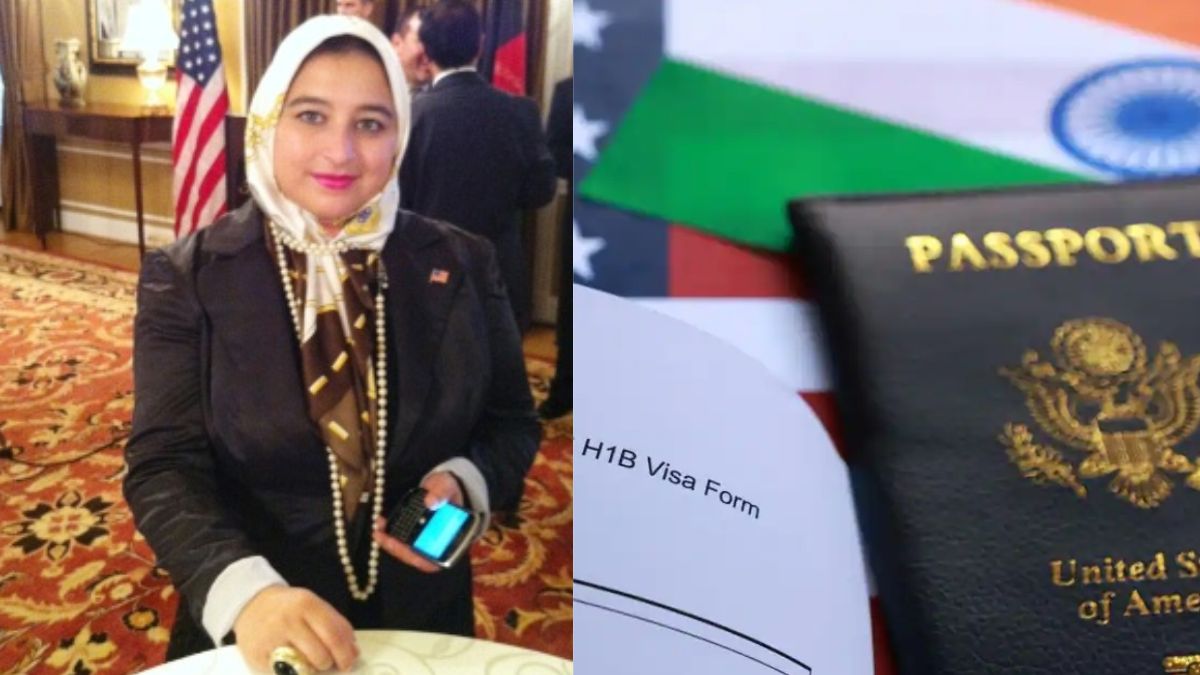The US’ H-1B visa programme is once again under scrutiny, and this time, the storm has been kicked up by an Indian-American diplomat herself.
Mahvash Siddiqui, who previously served at the US consulate in Chennai, has alleged that large-scale and organised fraud is happening in the system. According to her, a big chunk of H-1B visas issued to Indians were secured through dishonest means.
Her claims have been amplified by former US Representative and economist Dr Dave Brat, who says the numbers coming out of certain consulates don’t add up, alleging an “industrial-scale fraud” with the visa allocations.
The H-1B is one of America’s most sought-after work visas, heavily used by US companies to bring in specialised foreign workers, and Indians have long been the biggest recipients.
So, what exactly are they alleging? And does it point to deeper cracks in the programme? Here’s a closer look
‘No action taken due to political pressure’
Siddiqui, who served at the US consulate in Chennai between 2005 and 2007, shared her concerns on a podcast, where she spoke openly about what she witnessed as a consular officer.
Chennai, or Madras, is one of the busiest H-1B processing hubs in the world, and she pointed out that officials there handled huge volumes, including 220,000 H-1B visas and 140,000 H-4 visas for dependents in 2024 alone.
Siddiqui said she was speaking in her personal capacity, not as a diplomat. She questioned the popular belief that the US faces a shortage of Stem (science, technology, engineering, and mathematics) talent and therefore must rely heavily on Indian workers.
According to her, the real issue lies elsewhere. Siddiqui alleged that 80–90 per cent of visas issued to Indians, especially H-1Bs, were fraudulent. She claimed many applications were supported by fake degrees, forged documents, or involved applicants who did not actually meet the skill level required for these specialised jobs.
She said that during her time in Chennai, the team began spotting these patterns early on and alerted senior officials. But the response, she claims, was deeply disappointing.
“We quickly learnt about the fraud. We wrote a dissent cable to the Secretary of State, detailing the systematic fraud we were uncovering. But due to political pressure from the top, our adjudication was overturned,” she said during the podcast.
Siddiqui alleged that no corrective action was taken because of “political pressure”, allowing the cycle to continue.
Economist and former Congressman Dr Dave Brat has also raised questions about the numbers themselves. He pointed out that the national cap for H-1B visas is 85,000, yet Chennai alone allegedly accounted for 220,000 approvals.
“That tells you something’s going on right there. Then there’s a cap of only 85,000 H-1B visas, but somehow one district in India, the Madras (Chennai) district, got 220,000, two and a half times the cap Congress has set,” the former Republican lawmaker said.
Also read: A new US bill to replace H-1B lottery system? What it means for Indian workers and Big Tech
A big fraud in the H1B programme?
Siddiqui said she spent two years at the Chennai consulate, during which she personally adjudicated more than 51,000 non-immigrant visas, most of them under the H-1B category.
She explained that the Chennai post handled visa applications from four major regions: Hyderabad, Karnataka, Kerala, and Tamil Nadu. Among them, she said, Hyderabad stood out as the most troubling in terms of irregularities.
“As an Indian-American, I hate to say this, but fraud and bribery are normalised in India,” she said during the podcast.
According to her, the issues went far beyond paperwork. Siddiqui alleged that some candidates avoided interviews altogether if the interviewing officer was American, while in other cases, proxy applicants appeared on behalf of the real candidate.
She also claimed that certain Indian managers were offering jobs to fellow Indians in exchange for a portion of their salary, further fuelling a system that, in her view, had become deeply compromised.
With input from agencies
)